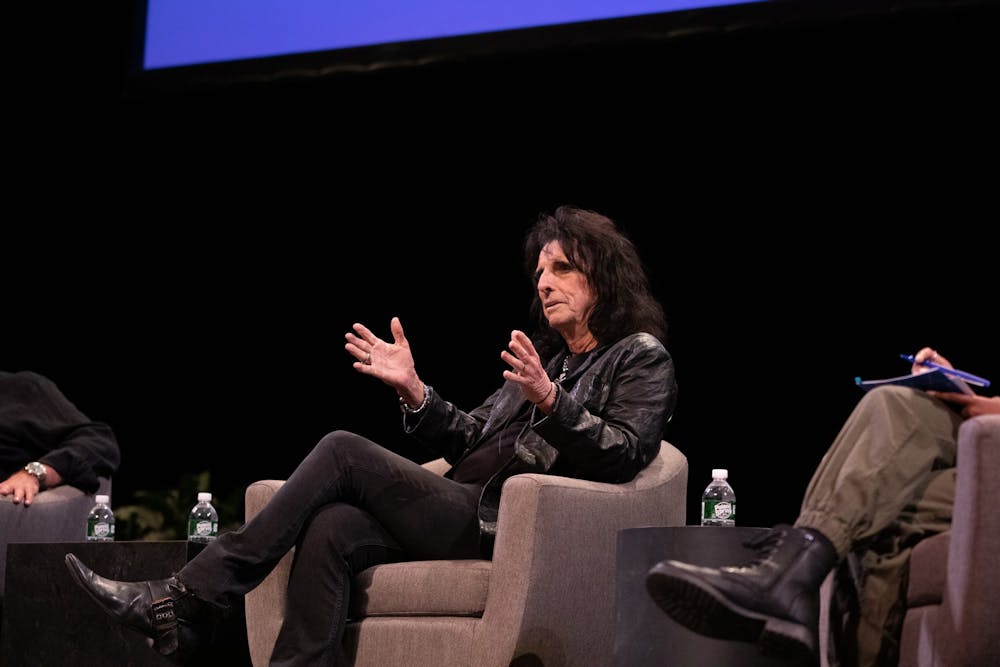Within 24 hours of being in Los Angeles, UB alum Shep Gordon had quit his short-lived ambition as a parole officer at Los Padrinos Juvenile Hall and stumbled into the Hollywood Landmark, a hotel where Jimi Hendrix helped plant his feet in the music industry as a manager for Alice Cooper.
Cooper, along with Gordon, visited UB’s Center for the Arts Tuesday to discuss their partnership over the past 50 years. The Rock & Roll Hall-of-Famer explained that he had no plans to become a musician when he moved to LA, yet the unforeseen nature of their paths drew them together. The magnetism between them was so strong that it relieved any thought of signing the standard contract between musician and manager.
Along with their undying admiration, their unconditional trust and respect for each other in their 53 years together is what they owed their seamless relationship and successful career to.
“Neither one of us ever compromised Alice Cooper, who’s the entertainer,” Gordon said. “We have really clear visions and neither one of us takes it personally. Normally in a relationship, everything is so personal. And ours comes together on this third person,” referring to Cooper’s alter-ego as a performer.
When Cooper’s first show in London only sold 1,000 seats at a venue that fit 8,000, they faced the challenge of deciding their level of commitment to their roles as musician and manager.
Gordon recalled his thought process: “How do I communicate to the parents of London how despicable Alice Cooper is? So that they’ll say to their kids, ‘you’ll get grounded if you go to the concert.’”
The answer? Have buses that displayed pictures of Cooper lying naked with a snake around his genitals circling around London’s Piccadilly Square. Since BBC Morning News always monitored the traffic in the square, Cooper’s pictures had circulated the TV screens and front page papers enough for him to sell out the venue in 18 hours. It was almost enough to ban him from ever coming to London Parliament.
As Cooper garnered more popularity from publicity stunts, he realized “the more outrageous the rock stars were, the more popular they were,” which helped him solidify his essence.
“Nobody wanted to be the villain. I saw a bunch of rock heroes and it was all these Peter Pans and no Captain Hook. And I go, ‘I’ll be Captain Hook,’” Cooper said.
And Cooper embodied the villain that transcended the one he set out to become.
What used to be Captain Hook’s “prepare to die,” became Cooper’s “prepare to live” as he launched himself into animated stunts that surpassed the imagination of childhood villains. From biting a chicken’s head and drinking its blood to faking an execution by wearing a noose around his neck, he earned his title as the “Godfather of Shock Rock.”
“And that’s where Alice and I really came together [and found] that we could create a character that could be a part of a social revolution,” Gordon said.
Their refusal to compromise Cooper’s identity created a cultural moment that could never be replicated today.
“If you’re going to say ‘Welcome to my nightmare,’ don’t just say it,” Cooper said. “Give them the nightmare.”
Tenzin Wodhean is the fact checker and can be reached at tenzin.wodhean@ubspectrum.com





